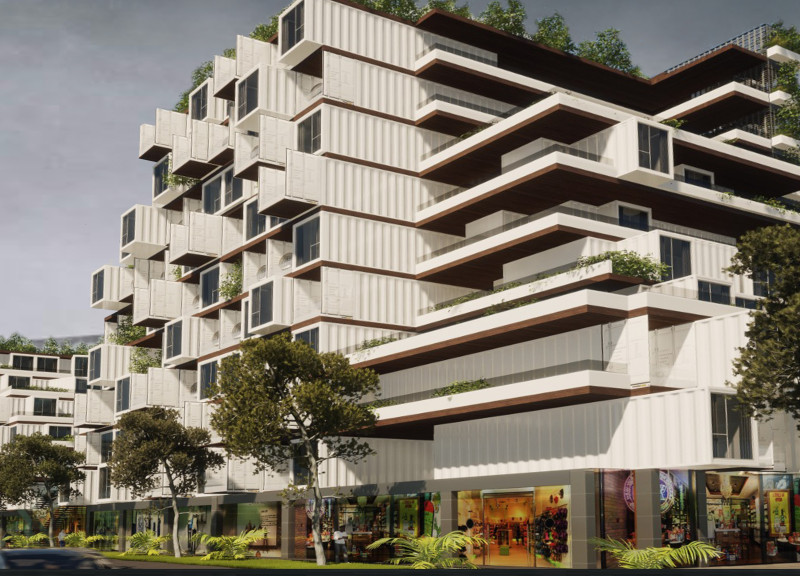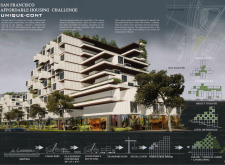5 key facts about this project
The design presents a modular housing solution located in the urban landscape of San Francisco, focusing on key social and housing needs. The overall concept revolves around creating small social groups, promoting community interaction, and incorporating sustainability through the innovative use of shipping containers.
Modular Design Framework
A modular framework is utilized, allowing the configuration of living spaces to be flexible. Shipping containers can be combined to form apartments that cater to various resident needs. This method speeds up construction and allows for adjustments based on the limited space typical of urban areas.
Public Engagement Spaces
The design allocates the lower floors for public functions, including shops, recycling points, creative studios, and workshops. This choice fosters accessibility and encourages residents to engage in community activities, creating an energetic environment. By integrating residential and commercial spaces, the approach supports a cohesive sense of community.
Sustainable Practices
An important aspect is the vertical farming system embedded in the facades. This feature allows residents to cultivate vegetables and fruits, addressing food security while promoting awareness of ecological considerations. Additionally, the project includes an efficient irrigation system that relies on rainwater and re-filtered greywater, further emphasizing a commitment to sustainable management of resources.
Green Terraces and Social Interaction
Each modular block includes green terraces, providing outdoor areas that encourage a connection to nature. Common areas on the second floor and public green courtyards are designed to enhance social interaction among residents, fostering a lively sense of community within the housing complex.
Shipping containers serve as a practical way to recycle materials while meeting housing demands. The adaptability of each container not only fulfills spatial needs but also reflects a modern approach to urban living, blending functionality with a clear sense of purpose.






















































